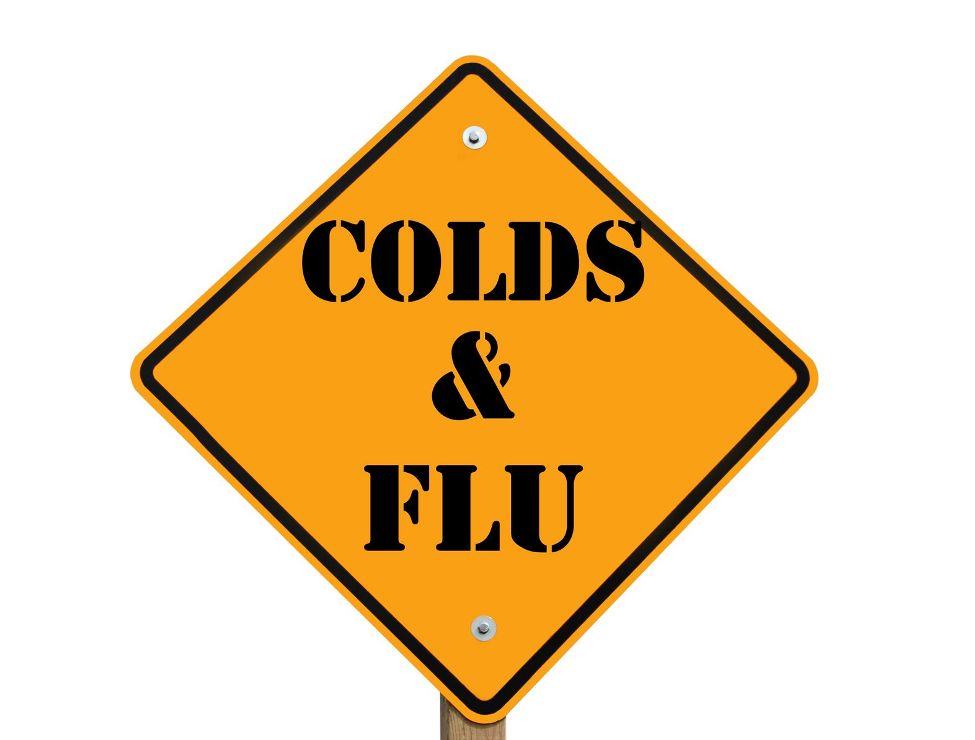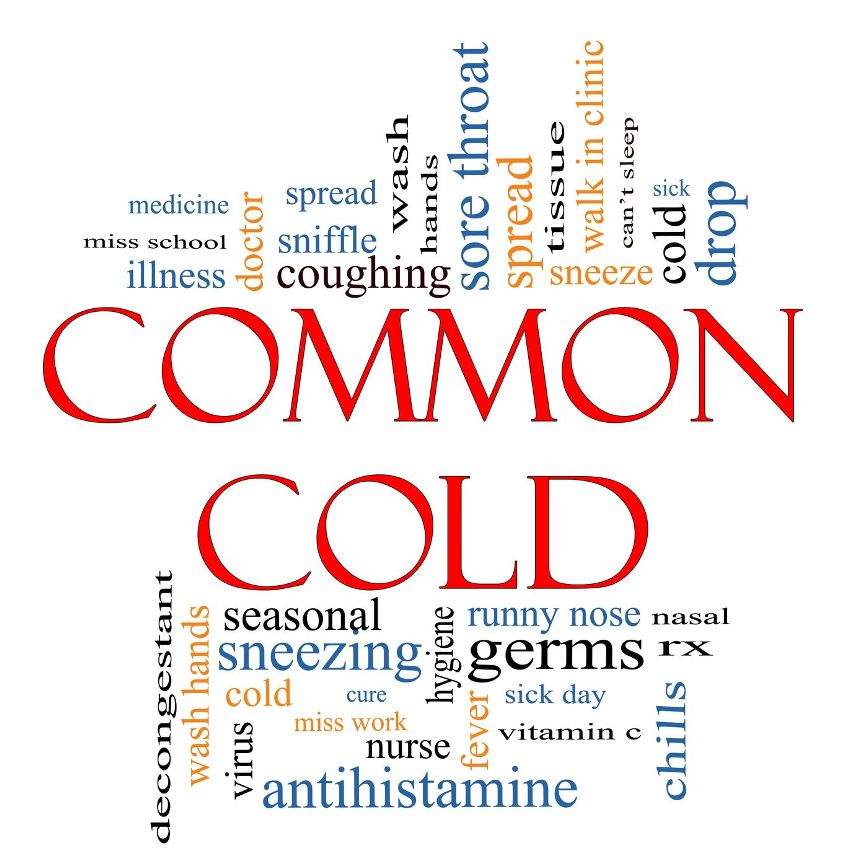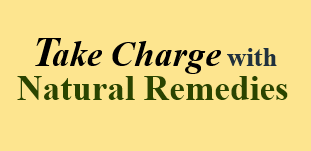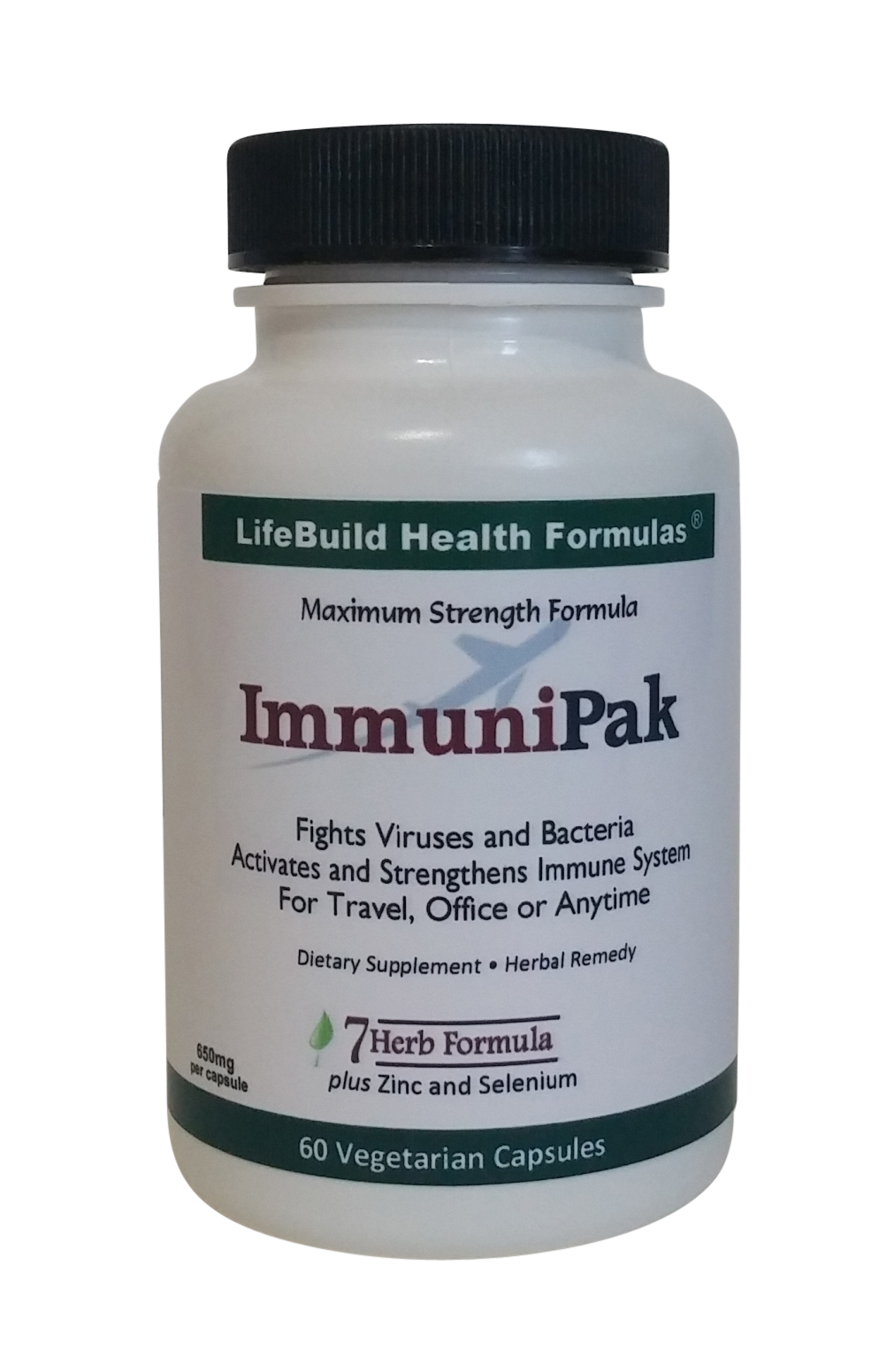The Anatomy of a Cold
What Cold Symptoms Actually Mean

Nobody likes getting the cold or flu! The sneezing, sore
throat, runny nose, aches and fatigue. Pretty uncomfortable. We've all been there and done that.
Our first reaction is to run to the local pharmacy to pick up one of the many over-the -counter cold medicines to dull some of those symptoms. But hold on for a quick second before you do that.
Have you ever wondered what all those cold symptoms actually mean and what your body defenses, your immune system, is trying to accomplish? Could there be a relationship, perhaps some kind of connection between the cold symptoms you are experiencing and your body's defense mechanism. So we're going to take a look, because what you do when you get a cold matters.
As the owner and product formulator for LifeBuild Health Formulas as well as a certified herbalist, you can imagine I talk to a lot of people about health And the vast majority of people that I talk to believe that an over-the-counter cold product
actually helps a cold heal. I've heard it countless times.
But what if I told you that the standard cold medicines you can buy at your local pharmacy might actually be interfering with your body’s own natural defense responses to fighting a cold virus?
What if all those cold ‘symptoms’ are an indicator that your body is simply doing its job? And if that were true (spoiler alert: it is indeed true!), would it always be in your best interest to suppress those symptoms?
I’ll leave that between you and your doctor. But it can help to know a bit more about what's going on in your body, what your immune system is doing during a cold, and what all those cold symptoms actually mean.
On average, adults in America get 2-3 colds a year and we spend 3 billion dollars annually on over-the-counter cold medication. The common misperception is they actually fight a virus. But they don't. They only suppress symptoms.

Now I’m not saying that some kind of symptom relief is necessarily a bad
thing. After all, we have a life to run. But your typical OTC cold
medicine comes at a price.
So before you automatically reach for a cold medication, here's a few things to think about.
"Cold symptoms are actually a sign that your
immune system is fighting the virus"
You have a remarkable and extremely intelligent defense
system that is constantly being
bombarded by potentially harmful pathogens such as viruses, bacteria and
parasites among other things.
Most of the time we don't even notice that it's working. But then, every once in a while, something gets through, and your immune system needs to take it up a notch.
That's what happens when we get a cold. The symptoms we see and feel during a
cold are the processes of our body responding to the virus in an effort to heal itself.
So what is that sore throat all about?
When you contract a virus it often settles in the throat area, infecting the mucus membrane where it incubates and multiplies. The immune system immediately goes into action by increasing the blood supply in the area which transports more white blood cells and other antibodies to combat the virus.

The body does it by releasing histamine that dilates blood vessels to allow for this greater blood flow.
Histamine also makes your blood vessels more permeable which allows more immune cells such as leukocytes to leak through to injured or infected tissue.
The end result of this release of histamine is swelling and inflammation.
The actual sore throat is caused by the inflamed tissue that ends up pushing up against nerve endings that causes soreness. This is a great time to take virus fighting herbs in a gargle to hit that area where the viruses have settled. They can really help.
A common ingredient in OTC cold meds are antihistamines which serve to block the production of histamine, which, as you now know, is a key element in this important immune response to the virus.
So you have to ask yourself if you are doing the best thing by taking an antihistamine. While it may provide some relief, it may also compromise what your body is naturally trying to do to fight the virus. And don't forget the side effects inherent with medicines in general. They may be not be to your liking:)
Mucous, the cough, the runny nose
Mucous membranes line the sinus cavity and nose as well other areas of the body. That sticky thick substance they produce is an important part of the immune system because it serves to trap and engulf foreign substances or pathogens that might prove harmful to us, such as viruses and bacteria, and even parasites, and works to eliminate the threat.
The runny nose, or the extra mucous when you cough? It's all about your body fighting the fight.
Mucous is always being produced by your body. You just don't see it until there is a more urgent threat such as a virus, at which time your body produces more. Sometimes a lot more…
It also helps to stop viruses and bacteria from reaching your respiratory tract. You get rid of it, and whatever it has trapped, by blowing your nose and coughing it up. Mucous is not pleasant. But as you can see, it also is an important part of the immune system.
Fever, chills and sweating
When you get a cold or flu, chemical messengers signal the hypothalamus, the body's thermostat, to raise your body temperature. Why? Many viruses and bacteria are inhibited by higher temperatures. Even just a few degrees higher.
So it makes sense that your immune system uses heat as a way to slow down an invader.
The chills and shivering you feel is how your body increases the temperature. If you've ever shivered in the cold, you've experienced the process.
At the point your fever 'breaks,' your body has essentially fought off the virus, signaling a need to return to your normal body temperature of 98.6 degrees. Sweating helps to do this. Of course, you still don't feel great. But the worst is usually over.
Of course, we always have to monitor our symptoms, and know when to seek professional health care. But it's pretty clear that your immune system has a few tools it uses to fight the fight against viruses and bacteria.

And for the common cold? It might be better to just get out of the way, and
let your body do its work along with the support of a few key herbs
to help out when needed for pain and inflammation, or that can help strengthen and
assist your immune system. That and a whole lot of extra Vitamin C,
extra rest, and extra pillows:)
For a Premium Herbal Cold Fighting Remedy GO HERE
Is Orange juice Good For a Cold? Maybe not. READ ABOUT IT HERE
Want More Information About Herbs? CLICK HERE
More Health Building Articles HERE


